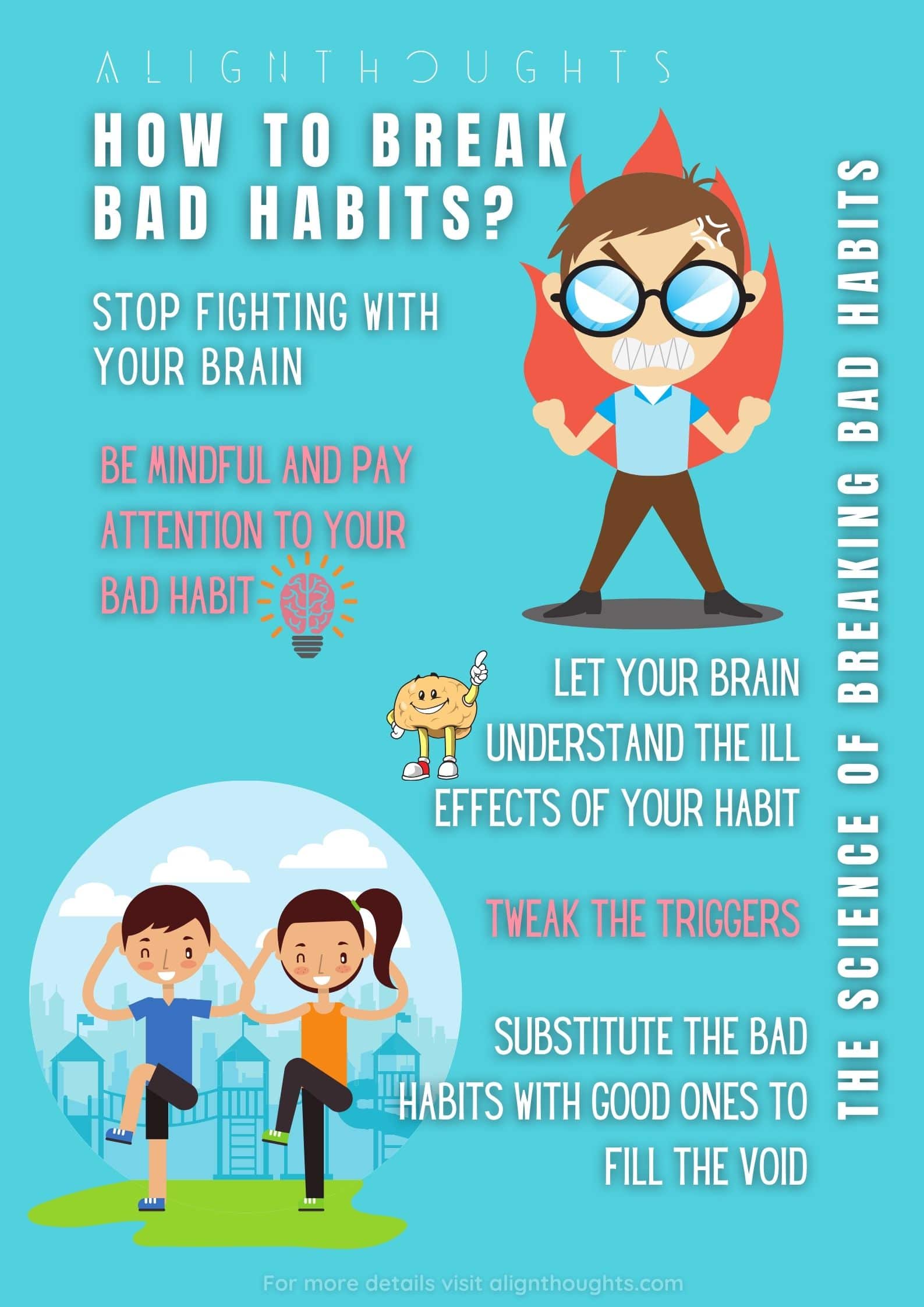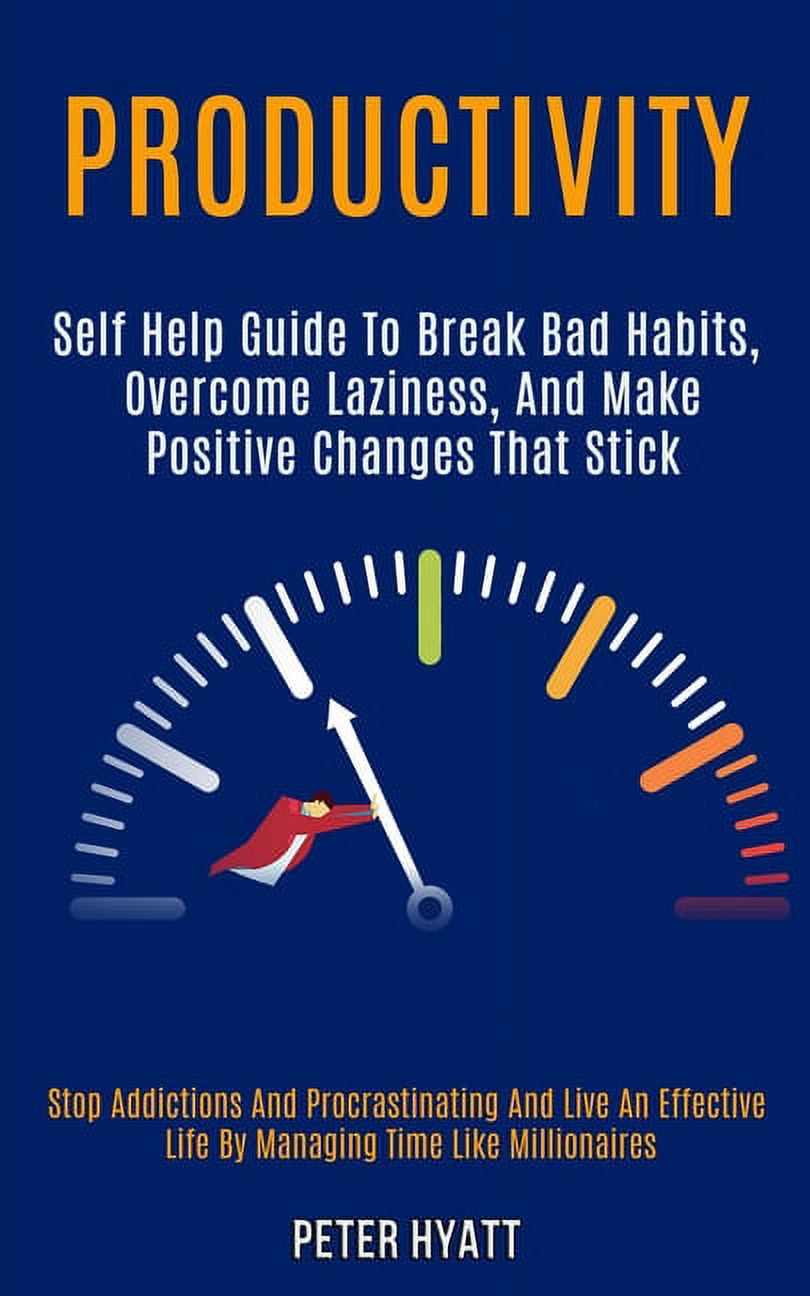How To Break Bad Habits Of Laziness

The siren song of the couch, the allure of endless scrolling – laziness, in its many forms, is a constant battle for countless individuals. It subtly erodes productivity, fuels procrastination, and ultimately hinders personal growth. But overcoming this pervasive inertia is not an insurmountable challenge.
This article delves into the science-backed strategies and practical techniques for breaking bad habits of laziness. We'll explore the psychological underpinnings of procrastination, unpack actionable steps for building discipline, and examine the importance of self-compassion in the journey toward a more proactive and fulfilling life.
Understanding the Roots of Laziness
Laziness is often misconstrued as simply a lack of willpower. However, research suggests it's often a symptom of underlying factors such as stress, burnout, or a lack of clear goals. Dr. Piers Steel, a leading researcher on procrastination, argues that it's an "avoidance coping mechanism" used to temporarily escape unpleasant tasks.
According to the American Psychological Association, chronic stress can impair executive functions in the brain, making it difficult to plan, organize, and initiate tasks. This neurobiological effect can manifest as decreased motivation and increased procrastination, contributing to perceived laziness.
Furthermore, poorly defined goals can foster a sense of overwhelm and uncertainty. This can lead to avoidance behavior, as individuals may feel paralyzed by the perceived enormity of the task at hand.
Actionable Strategies for Breaking the Cycle
1. Setting SMART Goals
One of the most effective ways to combat laziness is by setting SMART goals: Specific, Measurable, Achievable, Relevant, and Time-bound. These goals provide clarity, focus, and a sense of accomplishment as progress is made.
For example, instead of "getting in shape," a SMART goal might be "jog for 30 minutes, three times a week, for the next month." The specificity and measurability increase the likelihood of success.
2. Breaking Down Tasks
Overwhelming tasks can be paralyzing. Breaking them into smaller, more manageable steps can significantly reduce procrastination.
The "two-minute rule," popularized by author David Allen in his book "Getting Things Done," suggests that if a task takes less than two minutes, do it immediately. This eliminates the accumulation of small tasks that contribute to feelings of overwhelm.
3. The Power of Habit Stacking
Habit stacking, a technique described by James Clear in his bestselling book "Atomic Habits," involves linking a new desired behavior to an existing habit.
For instance, after brushing your teeth (an existing habit), commit to doing five minutes of stretching. By leveraging existing routines, it becomes easier to integrate new, productive habits into your daily life.
4. Creating a Conducive Environment
Your surroundings significantly impact your productivity levels. Minimize distractions by creating a dedicated workspace free from clutter and interruptions.
Consider using website blockers or apps that limit social media access during work hours. Background noise, such as nature sounds or instrumental music, can also improve focus for some individuals.
5. The Importance of Self-Compassion
It's crucial to acknowledge that setbacks are inevitable. Instead of self-criticism, practice self-compassion when you slip up.
Remind yourself that everyone struggles with procrastination at times. Learning from mistakes, rather than dwelling on them, is key to long-term progress.
As Kristin Neff, a leading researcher on self-compassion, explains, treating yourself with kindness during challenging times can foster resilience and motivation.
Seeking Professional Guidance
In some cases, persistent laziness may be a symptom of a deeper issue, such as depression or ADHD. If you find yourself consistently struggling to overcome inertia, consider seeking professional help from a therapist or counselor.
They can provide personalized strategies and support to address underlying issues and develop effective coping mechanisms. Remember, seeking help is a sign of strength, not weakness.
Looking Ahead: Cultivating a Proactive Mindset
Breaking bad habits of laziness is a continuous journey, not a destination. By implementing these evidence-based strategies and fostering a proactive mindset, individuals can unlock their potential and lead more fulfilling lives.
Embrace the power of small, consistent actions, and remember that even incremental progress is still progress. With patience, perseverance, and self-compassion, overcoming laziness is entirely achievable.


















